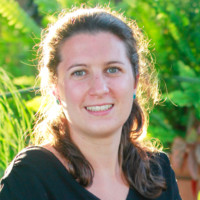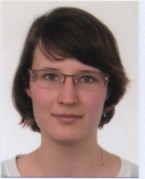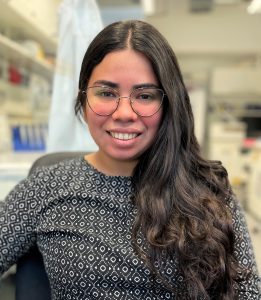
Marta Alonso Roldán
Clínica and CIMA Universidad de Navarra
Spain
EMBO Practical Course
Humanized mouse models became an integral part of basic and translational biomedical research for the understanding of human pathologies and for development of new therapies. Human cells or tissues implanted in mice can reflect human hematopoiesis, immunity, oncology, infections, physiology and genetic polymorphisms. The development of immunotherapeutic drugs, cell and tissue therapies rely on the preclinical testing to assess their potency and safety. “Big pharma” and biotech companies include humanized mice in the non-clinical development portfolio. Humanized mouse models have varied among laboratories regarding the use of new transgenic and knock-out strains, improved handling methods, innovative sources and manipulation techniques of the human graft material and novel technological platforms for analyses.
The topics of this course are immune reconstitution, oncology, immuno-oncology, regenerative medicine and infections. We will update the participants about different case-by-case models starting with the basic science, and how to best explore these models with accurate data acquisition and reporting. We aim to instruct the principles of experimental pre-requisites for data recording and harmonized analyses within the field. Techniques and results will be presented and discussed in sessions, round tables will focus on ethics requirements for animal handling and human tissue collections. Social activities will boost networking among international participants.
This course is aimed at PhD students and early post-doctoral researchers who are entering the field of humanized mice models.
“The course was a great professional investment and a unique opportunity to make new contacts, learn from experts, be inspired, and learn a lot. I highly recommend this course!” – Priscila Pini Zenatti, Boldrini Children Hospital, Brazil
“The course on humanised mice gave me the opportunity to meet and connect with young and established researchers in the field. Not only could I gain valuable feedback on my work as well as the humanised mouse model, but also connect with the research community and strengthen my skills.” – Lisa Rieble, University of Zürich, Switzerland
This event has been granted the following EMBO sustainability badge:


Clínica and CIMA Universidad de Navarra
Spain

University of Freiburg
Germany

University Hospital Cologne
Germany

Duke University School of Medicine
USA

UMass Chan Medical School
USA

University Hospital Cologne
Germany

EMBL Heidelberg
Germany

Institut Pasteur
France

The Jackson Laboratory
USA

EMBL Heidelberg
Germany

Food and Drug Administration
USA
(Virtual speaker)

The Jackson Laboratory
USA

University of Colorado Anschutz Medical Campus
USA

University of Colorado Anschutz Medical Campus
USA

University of Zurich
Switzerland

University of Colorado Anschutz Medical Campus
USA

University of Cambridge
United Kingdom
(Virtual speaker)

Takeda Pharmaceutical Company Limited
USA

University of Zurich
Switzerland

Bernhard Nocht Institute for Tropical Medicine
Germany

University of Southampton
United Kingdom

University Medical Center Freiburg
Germany

Roche Innovation Center Zurich
Switzerland

University of Groningen
The Netherlands

The Jackson Laboratory
USA

The Jackson Laboratory
USA

University Hospital Cologne
Germany

University Hospital Cologne
Germany

University of Washington
USA

Ghent University
Belgium

University of Zurich
Switzerland

Bernhard Nocht Institute for Tropical Medicine
Germany

University of Groningen
The Netherlands

The Jackson Laboratory
USA

The Jackson Laboratory
USA

University Hospital Cologne
Germany

Course and Conference Officer
EMBL Heidelberg
Germany

Training Laboratory Manager
EMBL Heidelberg
Germany
Are you on social media? Post using #EMBOHuMice and don’t forget to tag @EMBLEvents.
| Time (Europe/Berlin) | Session | Location |
|---|---|---|
| 11:45 – 12:00 | Bus from hotel to EMBL ATC Entrance | ISG Hotel |
| 12:00 – 13:00 | Arrival & registrations with light lunch | Flex Lab A & B |
| 13:00 – 13:30 | Welcome & introductions | Flex Lab A & B |
| 13:30 – 15:00 | Flash Talks | Flex Lab A & B |
| 15:00 – 16:00 | Humanized mice past, present and future and Q&A Leonard Shultz – The Jackson Laboratory, USA | Flex Lab A & B |
| 16:00 – 16:30 | Bus to city centre | ATC Entrance |
| 16:30 – 18:00 | Guided tour | Heidelberg City Centre |
| 18:00 – 19:00 | Free time | Heidelberg City Centre |
| 19:00 | Bus to hotel and dinner | ISG Hotel |
| Time (Europe/Berlin) | Session | Location |
|---|---|---|
| 08:40 – 08:55 | Bus from hotel to EMBL ATC Entrance | ISG Hotel |
| 08:55 – 09:00 | Overview of the day | Flex Lab A & B |
| 09:00 – 09:45 | Lecture: Multi-lineage human immune system development by PBMC engraftment Michael Brehm – UMass Chan Medical School, USA James Keck – The Jackson Laboratory, USA | Flex Lab A & B |
| 09:45 – 10:30 | Lecture: HSC-humanized mouse models and reconstitution of human innate cells and lymphatic tissues James DiSanto – Pasteur Institute, France | Flex Lab A & B |
| 10:30 – 11:00 | Coffee break | Flex Lab A & B |
| 11:00 – 11:45 | Lecture: Models to study human unconventional T cells Bart Vandekerckhove – University of Ghent, Belgium | Flex Lab A & B |
| 11:45 – 12:30 | Lecture: Human B cell development and tolerance in humanized mice Roberta Pelanda – University of Colorado, USA | Flex Lab A & B |
| 12:30 – 13:30 | Lunch | EMBL Canteen |
| 13:30 – 13:45 | Live Q&A to pre-recorded practical introduction: Refresher course mouse handling and tissue collections Ernesto de la Cueva – EMBL Heidelberg, Germany | Flex Lab A & B |
| 13:45 – 14:00 | Live Q&A to pre-recorded practical introduction: Refresher course flow cytometry analyses Daniel Gimenes – EMBL Heidelberg, Germany | Flex Lab A & B |
| 14:00 – 14:15 | Live Q&A to pre-recorded practical introduction and protocol Standardization of multicolor flow cytometry panels, staining techniques and minimal information for standardizations Ashley Gardner – The Jackson Laboratory, USA | Flex Lab A & B |
| 14:15 – 18:15 | Practical 1: Animal handling, Immune Reconstitution, Flow Cytometry Groups 1 and 2: Blood Group 3 and 4: Spleen Group 5 and 6: Bone Marrow Trainers: Ashley Gardner and Lisa Rieble Helpers: Milita Darguzyte, Daniel Gimenes, Julie Lang, Estefania Rodríguez, Ali Roghanian, Li-Chin Yao | Training Lab B |
| 18:15 – 18:45 | Tapas dinner | ATC Rooftop Lounge |
| 18:45 – 20:45 | Poster session 1 (ODD numbers) | Helix B |
| 20:45 – 21:15 | Meet the speaker and round table discussion Results, ARRIVE guidelines for reporting data (Chairs: Roberta Pelanda and Michael Brehm) | ATC Rooftop Lounge |
| 21:15 | Bus to hotel | ATC Entrance |
| Time (Europe/Berlin) | Session | Location |
|---|---|---|
| 08:40 – 08:55 | Bus from hotel to EMBL ATC Entrance | ISG Hotel |
| 08:55 – 09:00 | Overview of the day | Flex Lab A & B |
| 09:00 – 09:45 | Lecture: Acute leukemia models, genomics and tumor microenvironment Jan Jakob Schuringa – University of Groningen, The Netherlands | Flex Lab A & B |
| 09:45 – 10:30 | Lecture: Humanized NSGF6 mice, immune reconstitution and melanoma metastasis Chun Yu – The Jackson Laboratory, USA | Flex Lab A & B |
| 10:30 – 11:00 | Coffee break | Flex Lab A & B |
| 11:00 – 11:45 | Lecture: PDX Models of Glioblastoma and oncolytic viral therapies Marta Alonso – University of Navarra, Spain | Flex Lab A & B |
| 11:45 – 12:30 | Lecture: Defining tumors for pharmacologic developments Alessandra Piersigilli – Takeda, USA | Flex Lab A & B |
| 12:30 – 13:30 | Lunch | EMBL Canteen |
| 13:30 – 13:45 | Live Q&A to pre-recorded practical introduction: Testing monoclonal antibodies: schedules and dose finding Ali Roghanian – University of Southampton, United Kingdom | Flex Lab A & B |
| 13:45 – 17:45 | Practical 2 Analysis of Xenograft tumor models grown on HIS mice: Principles of tumor biopsies, flow cytometry analysis of humanized xenograft tumor models. Trainers: Julie Lang, Ali Roghanian and Li-Chin Yao Helpers: Milita Darguzyte, Ashley Gardner, Zander Kostka-Newman, Lisa Rieble, Estefania Rodríguez | Training Lab B |
| 17:45 – 18:15 | Vegetarian pizza dinner | ATC Rooftop Lounge |
| 18:15 – 20:15 | Poster session 2 (EVEN numbers) 5 minutes presentation and 5 minutes questions per person (2 h max) | Helix B |
| 20:15 – 20:45 | Meet the speaker and round table discussion Ethics for obtaning human material (Chairs: Marta Alonso and Jan Jakob Schuringa) | Flex Lab A & B |
| 20:45 | Bus to hotel | ATC Entrance |
| Time (Europe/Berlin) | Session | Location |
|---|---|---|
| 08:40 – 08:55 | Bus from hotel to EMBL ATC Entrance | ISG Hotel |
| 08:55 – 09:00 | Overview of the day | Flex Lab A & B |
| 09:00 – 09:45 | Lecture: Applications of Humanized Platforms in Immuno-Oncology Brian Soper – The Jackson Laboratory, USA | Flex Lab A & B |
| 09:45 – 10:30 | Lecture: Studies of the tumor microenvironment and correlates of immune responses in immune oncology HIS-mice models Julie Lang – University of Colorado Anschutz Medical Center, USA | Flex Lab A & B |
| 10:30 – 11:15 | Coffee break and group photo | TBC |
| 11:15 – 12:00 | Lecture: Application of humanized mouse models in drug discovery Johannes Sam – Roche Zürich, Switzerland | Flex Lab A & B |
| 12:00 – 12:45 | Lecture: Neonatal tissue-based models for biosimilar research, CRS (Virtual) Kristina Howard – Center for Drug Evaluation and Research, USA | Flex Lab A & B |
| 12:45 – 13:45 | Lunch | EMBL Canteen |
| 13:45 – 14:00 | Live Q&A to pre-recorded practical introduction: Advanced histopathology: Analytical t-SNE (t-distributed Stochastic Neighbor Embedding), immune cell imaging in the tumor environment, location, organization, interaction, quantitation) Daniel Bachurski – University Hospital Cologne, Germany | Flex Lab A & B |
| 14:00 – 14:15 | Live Q&A to pre-recorded practical introduction: Implantation, collection and processing of tumors Li-Chin Yao – The Jackson Laboratory, USA | Flex Lab A & B |
| 14:15 – 18:15 | Practical session 3: Combined sessions: 1) IHC of humanized xenograft tumor models and 2) injection routes of humanization 3) tumor biopsies and implantation Trainers: Daniel Bachurski, Estefania Rodríguez, Li-Chin Yao Helpers: Milita Darguzyte, Julie Lang, Zander Kostka-Newman | Training Lab B |
| 18:15 – 19:15 | Dinner | EMBL Canteen |
| 19:15 – 20:15 | Meet the speaker and round table Lymph Nodes in humanized mice (Chairs Julie Lang and Brian Soper) | Flex Lab A & B |
| 20:15 | Bus to hotel | ATC Entrance |
| Time (Europe/Berlin) | Session | Location |
|---|---|---|
| 08:40 – 08:55 | Bus from hotel to EMBL ATC Entrance | ISG Hotel |
| 08:55 – 09:00 | Overview of the day | Flex Lab A & B |
| 09:00 – 09:45 | Lecture: Regenerative Medicine: Gene-modification of hematopoietic cells with lentiviral vectors and gene editing against cancer and pathologies Renata Stripecke – University Hospital of Cologne, Germany | Flex Lab A & B |
| 09:45 – 10:30 | Lecture: Gene Editing of hematopoietic stem cells and T cells for clinical uses Maria Silvia Roman Azcona – University Medical Center Freiburg, Germany | Flex Lab A & B |
| 10:30 – 11:00 | Coffee break | Flex Lab A & B |
| 11:00 – 11:15 | Live Discussion and Q&A to pre-recorded lecture: Development of human organoids and use in humanized mouse models (Virtual) Sandra Petrus – University of Cambridge, UK | Flex Lab A & B |
| 11:15 – 12:00 | Lecture: Human liver chimeric mouse models – the chances & challenges Karl-Dimiter Bissig – Duke University Medical Center, USA | Flex Lab A & B |
| 12:00 – 12:15 | Live Q&A to pre-recorded practical introduction: Gene editing molecular tools and methods Jamal Alzubi – University of Freiburg, Germany | Flex Lab A & B |
| 12:15 – 12:30 | Live Q&A to pre-recorded practical introduction: Gene editing standard operating procedures for practical class Renata Stripecke – University Hospital of Cologne, Germany | Flex Lab A & B |
| 12:00 – 13:00 | Lunch | EMBL Canteen |
| 13:00 – 17:00 | Practical 4: Engineering the grafts via non-viral CRISPR/Cas gene editing knock-outs and knock-ins Group 1: Gene editing hematopoietic stem cells Group 2: Gene editing T cells Group 3: Gene editing tumor cells Trainers: Jamal Azubi, Milita Darguzyte, Ali Roghanian, Renata Stripecke Helpers: Lisa Rieble, Estefania Rodríguez, Li-Chin Yao | Flex Lab A & B |
| 17:00 – 18:00 | Bus to Downtown (stop at ISG Hotel) | ATC Entrance |
| 18:00 – 21:00 | Downtown dinner | Wirtshaus zum Nepomuk |
| Time (Europe/Berlin) | Session | Location |
|---|---|---|
| 08:40 – 08:55 | Bus from hotel to EMBL ATC Entrance | ISG Hotel |
| 08:55 – 09:00 | Overview of the day | Flex Lab A & B |
| 09:00 – 09:45 | Lecture: Infections of immunocompromised hosts, EBV and KSV Christian Münz – University of Zürich, Switzerland | Flex Lab A & B |
| 09:45 – 10:30 | Lecture: Humanized mice to study emerging viral infections Estefania Rodríguez – Bernhard Nocht Institute for Tropical Medicine, Germany | Flex Lab A & B |
| 10:30 – 11:00 | Coffee break | Flex Lab A & B |
| 11:00 – 11:45 | Lecture: Infection of humanized mice with HIV and development of new therapies Bruce Torbett – University of Washington, USA | Flex Lab A & B |
| 11:45 – 12:30 | Lunch | EMBL Canteen |
| 12:30 – 13:30 | Final discussions, feedback & closing remarks | Flex Lab A & B |
| 13:30 | Bus to Hotel and Heidelberg train station | ATC Entrance |
The course is limited to 24 participants. For selection purposes, please note that your application will not be considered without a letter of motivation.
Registration fees include admission, course materials, meals and coffee breaks. This EMBO course includes accommodation and transportation to and from the ISG Hotel to the venue.
| Academia | €500 |
| PhD Student | €500 |
| Industry | €1000 |
A letter to support your visa application will be issued, on request, once payment of the registration fee is confirmed. We recommend that you book your visa appointment as soon as possible, to avoid any delay with your visa application.
The registration fee should be paid only after acceptance to the course. The results will be announced approximately 2-3 weeks after the application deadline.
After you have logged in and successfully registered, you will receive an email asking you to submit your motivation letter. Click on the link provided and enter your motivation letter in the text box provided. Alternatively you can submit your motivation letter by clicking on the link on the confirmation page directly after registering.
Instructions
Please note:
For detailed instructions, please watch our video on how to submit a course motivation letter.
For further information about registration and motivation letter submission please refer to the FAQ page.
Limited financial assistance is provided by the EMBL Advanced Training Centre Corporate Partnership Programme and EMBO in the form of registration fee waivers, travel grants and childcare grants.
Your place in the meeting is only confirmed by paying the registration fee, which is mandatory even when receiving a fee waiver.
The fee waiver will cover the registration sum that you have paid to attend the course.
The travel grant will cover the cost of travel (airfare, train, bus, taxi, accommodation, visa, and/or registration fees*) and is provided up to specified caps which are normally as follows:
– up to €500 for any participant travelling to an EMBO Practical Course.
– up to €1000 for any participant working in Chile, India, Singapore or Taiwan travelling to an EMBO Practical Course.
– up to €700 for any participant working in Croatia, Czech Republic, Estonia, Greece, Hungary, Italy, Lithuania, Luxembourg, Poland, Slovenia, and Turkey travelling to an EMBO Practical Course.
*Registration fees are only covered for EMBO Practical Courses
The organisers may reduce the grant cap to accommodate more participants. Recipients will be notified of their travel cap amount when they are informed of the outcome of their application. Original receipts must be provided with your signature for all costs incurred within two months of completion of travel. Scanned copies cannot be accepted.
There is the possibility to apply for a childcare grant to offset child care costs incurred by participants, speakers, trainers and organisers when attending a course. Eligible costs include (but are not limited to) fees for a babysitter or child-care facility and travel costs for a caregiver. Please note that priority will be given to early-stage researchers. There is a limited amount of funding available for the childcare grants and funds will be distributed amongst eligible applicants.
You may apply for financial assistance when submitting your motivation letter for courses. In your application, you will be asked to answer questions regarding why your lab cannot fund your attendance and how your attendance will make a difference to your career. Application for financial support will not affect the outcome of your registration application.
For the Boehringer Ingelheim Fonds Travel Grant, there is a pre-application question during the motivation letter submission process, and if selected you will be requested to complete a standard form and documentation consisting of your travel expense estimation.
The scientific organisers will select the recipients of registration fee waivers and travel grants during the motivation letter or abstract selection process. Results will be announced approximately 6 – 8 weeks before the event start date, however for some events this may be delayed. Selection results do not impact your admission to the meeting. Selection for registration fee waivers and travel grants is based on scientific merit, your current work or study location, the reasons for needing financial support, and the impact this event will have on your career.
Childcare grants will be allocated in the same timeframe (6-8 weeks before the event start date). Please note that priority will be given to early-stage researchers.
Costs will be reimbursed after the meeting only once a reimbursement form and original receipts (from travel costs) have been received.
See our list of external funding opportunities and for further information about financial assistance please refer to the FAQ page.
Accommodation in twin rooms, including breakfast, is included in the registration fee. Accommodation has been booked for you at the ISG Hotel for the default dates of 16 to 21 November (6 nights). In case you would like to have a single room, please let the hotel know and note that you will be required to pay directly an additional cost of €24 per night (availability of single rooms may be limited). Any additional nights need to be booked and paid for by you. We recommend that all course participants stay at the ISG Hotel which is the dedicated hotel for the course.
For travel information, please see here.
If you are travelling to the conference within Germany then you are eligible for the Deutsche Bahn ‘Event Ticket’ (called the ‘Veranstaltungsticket’ in German). This will result in a lower ticket price if your travel distance to Heidelberg is more than 100 km. You need to provide proof of your event attendance when purchasing the ticket.
For more information in English see here or in German see here.
You can book your ticket here.
Shuttle buses will go from the ISG Hotel to EMBL and back, mornings and evenings. A bus schedule and location of the bus stops will be made available prior to the meeting.
Address: EMBL Heidelberg, Meyerhofstraße 1, 69117 Heidelberg, Germany
For more information about accommodation and travel, please refer to the FAQ page.
All meals and coffee breaks are included in the registration fee. Our catering staff will prepare a wide variety of vegetarian meals, meat and fish dishes, soups, pasta, fresh fruit and vegetables, as well as a variety of desserts.
Please wear your badge at all times when serving yourself.
No food or drinks are allowed in the laboratories.
In most places the electricity is 220 volts AC (50 cycles). An adaptor and a plug that fits the German socket may be needed for your appliances/laptop (i.e. American, Japanese, etc.). A USB charging station for electronic devices is available at the registration desk.
If you are interested in purchasing EMBL merchandise (products presented in the glass display in the registration area), please email the EMBL shop to place an order or get in contact with your Course Organiser.
Kindly note the EMBL shop is only open upon request and all purchases must be made in cash (Euros only).
Please read EMBL’s COVID-19 safety policy for on-site events.
Do not smoke in any EMBL building.
Eating and drinking is prohibited in all laboratories.
Do not enter any restricted areas or the laboratories unless instructed to do so.
If first aid is required …
In case of fire …
Beyond first aid…
Please remember to bring your own medication, if needed, to the conference. Note that the next pharmacy is a 4-minute drive from the EMBL, but for many medications you will be required to see a doctor to get a prescription.
Ensure in advance that your medical insurance will cover you during your visit in the event that you do need to see a doctor while in Heidelberg. In any case, the EMBL Course and Conference Office will assist you to get to the pharmacy and a doctor of your choice if necessary.
Wi-Fi is available on campus. Log in using the EMBL-Events network and the event specific password, which will be provided on site. The eduroam network (secure, worldwide roaming access service developed for the international research and education community) is also available.
‘’Lost and Found’’ items are kept at the registration desk until the end of the conference.
There are lockers available on-site to store your luggage, which require a 2 EURO coin to operate. There is another luggage room on level E0, which is free to use but remains unlocked during the conference.
There is a nursing room available in the ATC Rooftop Lounge on level A29.
During the conference, an EMBL Photographer may be taking photos. If you would not like to appear in these, please inform the photographer or a member of the Course and Conference Office.
We can help to print your boarding pass/train ticket. Please send it to events@embl.de and collect your print-outs at the registration desk.
There is a room for prayer, meditation, and yoga located on level E0 behind the Auditorium. Please be respectful of others using the room.
A variety of activities in Heidelberg can be found on the website of Heidelberg Marketing.
During the event, we provide conference shuttle buses to and from EMBL. In addition, there is the public bus 39A that serves the EMBL campus and taxis can be easily booked at any time. Information on the shuttle buses can be found on the individual event website and more detailed information on travelling to EMBL can be found on our Travel Information page.
Address: EMBL Heidelberg, Meyerhofstraße 1, 69117 Heidelberg, Germany
Please find additional information including FAQs, terms and conditions, COVID-19 safety policy and travelling to EMBL on our Information for Participants page.
(delete the technical requirements part if it is not a computer based course in the courtyard room, as well as change label of the details section to only Event Software)
Below you will find the software and technical requirements for this course.
The EMBL eCampus learning platform will be used to collaborate, communicate and network with all of the course participants. All participants will receive information on how to join shortly before the course. We recommend using Chrome, Safari or Mozilla Firefox browsers for eCampus.
Please find additional information including FAQs, terms and conditions, COVID-19 safety policy and travelling to EMBL on our Information for Participants page.
COVID-19 information for on-site events at EMBL Heidelberg can be found in our COVID-19 FAQs.
Course partners
Course sponsors
Sponsorship opportunities
We offer a variety of event sponsoring possibilities, with the flexibility to select a set sponsorship package or combine individual sponsorship options to suit your event budget. Discounts are available for companies sponsoring multiple events at EMBL Heidelberg. View other events, or contact sponsorship@embl.de for further information.
If you are interested in becoming a media partner of this event, please visit our media partnerships webpage.
EMBL wishes to warn sponsors of EMBL conferences and courses of fraudulent schemes purporting to offer sponsorship opportunities on behalf of EMBL or affiliated with EMBL officials. One current scam campaign of which we are aware is conducted using the name ‘Judy Eastman’ (judy@gopcontact.a2hosted.com) and entails approaches to sponsors offering sponsorship opportunities on EMBL’s behalf. Please be kindly advised that all relevant communication regarding sponsorship of EMBL conferences, symposia and courses is handled by EMBL directly and is sent from an official EMBL account. EMBL does not work with any external providers on sponsorship acquisition.
Please also note that:
Suspicious communications purportedly from, for or on behalf of EMBL should be reported to EMBL at the following email address sponsorship@embl.de.
Want to let others know you’re attending this event? Take a look at our shareable media and feel free to use them in your social media channels or presentations.

Date: 17 - 22 Nov 2024
Location: EMBL Heidelberg
Venue: EMBL Advanced Training Centre
Deadline(s):
Application: Closed
Organisers:
Contact: Catherine Casas-Saavedra